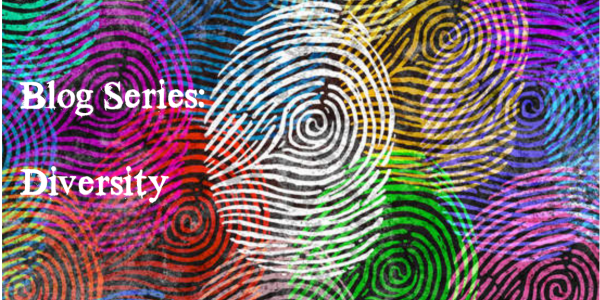
Written by Ándrea Laurencell Sheridan, Diversity Team Coordinator
When I’m not spending my time diligently diversifying the International David Foster Wallace Society or teaching my seven sections of mainly introductory literature courses, my guilty pleasure is true crime. Specifically, the wrongfully convicted. When I begin my PhD program in the Humanities next fall, I plan to focus on the narratives of the wrongfully convicted, so I suppose we can say that it is not just a guilty pleasure, or at least it soon won’t be.
One of the first widely publicized wrongful convictions in mainstream media was the case of the West Memphis Three, three teenagers convicted of murdering three eight-year-old boys. The case was made famous–or infamous depending on which side you fall on–first by the HBO documentary Paradise Lost and later its sequels, as well as other books, standalone documentaries, memoirs, and podcasts. Much of the case hinged on the cultural anxiety over the “Satanic Panic” in the 1980s and 1990s. The West Memphis Three case began in 1993, and by most accounts the police had their minds made up about who committed the crimes before any victimology or evidence had been evaluated. It seems to me, and to many, that they worked to make the evidence fit the suspects, and not the other way around. I won’t go into that here, as that is not the point of this post or of this blog space, really. My point is Damien Echols. (If you’re interested in the case, two nice resources are season 5 of the Truth & Justice podcast and The Last Podcast on the Left, which puts a more comedic flair on its topics).
Echols was at the center of the case; he gained notoriety as the “ringleader” of the supposed Satanic activity of the WM3. He was convicted and sent to death row for eighteen years before being freed on August 19, 2011, via an Alford Plea. Echols spent over half of his time in prison in solitary confinement, with most of the time spent in his cell with no human contact. Prior to his incarceration, Echols attained only a ninth-grade education, which was the most formal education of anyone in his family. However, there are many similarities between the personal philosophy espoused by Echols–which can be seen in his memoir and upcoming book High Magick, as well as in conversations with him personally–and our man David Foster Wallace. As we know, Wallace, by contrast, earned advanced academic degrees, lived a life in academia, and was awarded the McArthur “genius” grant.
I have long held that much of Wallace’s personal philosophy–or at least that to which we have access through his nonfiction, his interviews, what can be parsed from the fiction, and especially in This is Water–has a fairly simple premise: We must find a way overcome our own narcissism–or solipsism–or we will be eaten alive. Wallace delivers these messages frequently in academic language and with some typical postmodern ideals, such as the “job of the liberal arts education” in This is Water or the ironization of irony in many of the brief interviews in Brief Interviews with Hideous Men to really make us step outside of our own safe little spaces of self and avoid really confronting our own hideousness, respectively. Wallace calls out our “natural, basic self-centeredness” as “socially repulsive” in This is Water, calling it our “default setting, hard-wired into our boards at birth.”
Echols calls this same “default setting” the “ego.” Echols’s “ego” isn’t exactly the same as Freud’s, but it does seem to be analogous with Wallace’s default setting. On August 9, at Brooklyn Bowl (a restaurant, bar, and bowling alley in the hipster-laden Williamsburg section of Brooklyn, admittedly a unique venue for such an event), Echols held an “Introduction to High Magick Class.” For Echols, “High Magick” is essentially a type of meditation, but I’ll get to that later. Echols entered the venue from a staircase coming from above–somewhere unseen to the audience awaiting–wearing all black, but flowing, clothing. This has become a bit of a “uniform” for Echols, in the same way that Wallace’s bandana became for him. Echols began his talk with explanation of the ego. I paraphrase, here, because recording devices and phones were not permitted at the event: Echols described humanity as a sea of energy, but we have trouble seeing that energy because we’re trapped behind a screen of ego. The purpose, then, of magick is to get to a higher consciousness–to get beyond that ego and be able to see that energy. Just as Wallace encourages us to “learn how to think, how to pay attention,” Echols urges us to decide what to feed our energy into.
In This is Water, one of the major takeaways is that Wallace wants his audience to decide: “The only thing that’s capital-T True is that you get to decide how you’re going to try to see it. You get to consciously decide what has meaning and what doesn’t. You get to decide what to worship.” Echols doesn’t use this word “worship,” but he refers to our decisions to feed energy, observing, “Now, we’re feeding energy into bullshit” like Facebook, Twitter, drama that doesn’t concern us. Again, this is analogous to Wallace’s point. Deciding what has meaning is no different than deciding what deserves our energy. But Echols encourages us, unlike Wallace, to turn our energy inward to feed our own spirituality; if we are successful, enlightenment will be a fortunate side effect.
Wallace’s argument is the opposite of Echols’s, though the result is basically the same. Wallace urges us to turn our energies and attention away from ourselves; instead of considering only ourselves in the grocery store, or on the freeway, or other such places, we should consider that others in our vicinity may have similar or worse problems. And by doing so, we will get out of our default setting and, as a fortunate side effect, we’ll no longer be “pissed and miserable every time [we] have to shop.”
Much of Echols’s language at this point in his writing and communication about Magick is based in religion, specifically angels and archangels. His explanation for this goes back to the fact that he only has a ninth-grade formal education, but he attended Sunday School as a child, and was interested in religious studies as a teen, even converting to Catholicism–which is when he chose the name Damien, after Father Damien–before abandoning Christianity for less conventional spiritual beliefs (at the point of his arrest, Wicca). His religious education, therefore, is thorough and far-reaching; he has and has had an extensive vocabulary associated with religion and its symbology, symbolism, iconography and metaphors. Echols admits that like all language, his is metaphor, a symbolic representation of what he practices. Like Wallace, Echols sees language as a closed system, one which has limits, but which we must try to use in order to communicate. Objects, such as tarot cards often help practicers of Magick to bridge possible language barriers. Again, to paraphrase Echols, we all have to use the language we have and are able to access to describe our experiences. Whether that comes in the form of Wallace’s sometimes overly formal academic diction or Echols’s seemingly more accessible spiritually-based language, they’re each attempting to communicate a similar message: get away from your own self-centered “default setting” to achieve an elevated, more pleasant emotional state.
In his post-prison life, Echols has had to make a shift and view his world through another lens. This ties back to Wallace’s idea of learning “how to think.” After spending eighteen years on death row, Echols had a choice–let it eat him alive and leave him “totally hosed,” or decide if it had meaning, and what kind of meaning that would be. In order to live his life more than just the “day-in day-out” “rat race” that Wallace warns of in This is Water, Echols decided that his life in prison was part of his past, a now-insignificant step to where his life is now.
Toward the end of his talk, Echols said succinctly, “Magick is conscious evolution.” Here, Echols’s words are analogous to Wallace’s advice in This is Water: “Learning how to think” is a similar nod toward conscious evolution. Both are ways to describe how to get outside of ourselves in order to be more conscious, more aware, “of what is so real and essential, so hidden in plain sight all around us, all the time, that we have to keep reminding ourselves, over and over: ‘This is water, this is water.’” For Echols, though, this is Magick.
